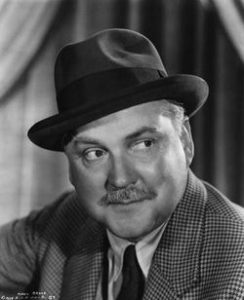The 4 Rules of Watson
Sidekicks are an interesting fictional creature. They can inspire the same amount of love as the hero, but everyone understands that they’re somewhat more malleable. And nobody understands that better than John Watson.

I mean, John Watson.

I mean…



All of these characters serve the same story purpose(s). But they have wildly different personalities.
Lucy Liu’s Watson would never punch Holmes in the face for an obnoxious comment the way Jude Law’s Watson did. Martin Freeman’s Watson wouldn’t put his foot in a bucket and knock over all the clues. Some Watsons are openly amiable like puppies. Others are just friendlier than Holmes. Some are pretty smart. Others fall a few IQ points below the (assumed to be) average-intelligence audience. Some you’d trust with a gun, others you’d prefer to give a melee weapon, still others maybe a very well padded helmet.
But apart from the differences, all good Watsons follow the same character laws. When building a Holmes-Watson, expert-sidekick relationship in fiction, there are four thou-shalts. At least, according to me.
So here they are:
1. Watson must be interesting when interacting with Holmes.
Watson and Holmes interacting is the bread-and-butter of this type of story. I don’t even mean in the emotional plotline way: I mean in the literal, most scenes of solving the mystery will involve the two characters in the same place doing stuff together, way.
If we can’t wait for Watson to shut up so Holmes can keep talking, we’re not gonna have a good time.
That means Watsons change with the zeitgeist. A Nigel-Bruce bumbling Watson would be insufferable in hero-fantasy shows like Sherlock or flawed-Holmes adaptations like Elementary. Slapstick is no more or less funny than other genres of comedy, and no one can top the physical genius of the best slapstick comedians, but broad physical humour just doesn’t fit in today’s most popular styles. We’d be like, ugh, that guy again.
Bumbling!Watson works better as a foil Captain!America!-style Holmes, in which Holmes is a big Boy Scout who can do no wrong and whose humorous eccentricities never deepen into real flaws. Then, he falls into the second half of a straight-man-and-clown comedy duo, like Abbott and Costello or Laurel and Hardy. But, as a society, we’re not interested in those kinds of heroes anymore. Even actual Captain America needs to make tough personal decisions and be vulnerable these days.*
2. Watson must be interesting on his/her/their own.
Okay, so the first rule kind of goes without saying, in a don’t-write-characters-who-are-always-boring kinda way. But I find that it’s really easy to mess up this second one, as evidenced by the numerous ho-hum Holmes adaptations out there.
Watson has to be interesting as an individual. Otherwise, they’re not a character, they’re a rhetorical device.
For me, this is where Elementary shines: I’d watch Lucy Liu’s Watson in her own show, with Sherlock as an occasional guest star. She has her own driving motives and problems, sometimes ones that conflict with Sherlock’s. She has her own network of relationships with the rest of the characters and her own conflicts with some of the recurrent antagonists. She’s also smart and funny.
The audience spends a lot of time with Watson. If we don’t actually like her, if she’s just a convenient, neutral pair of shoes for us to park our feet, that’s one fewer character for us to fall in love with. Worse, it’s the character with whom we’re going to spend the majority of our time, because even in TV/movie adaptations, we still tend to hover along with Watson. That’s because…
3. Watson must help the audience access Holmes’s intelligence.
This is the whole narrative point of having a Watson in the first place. Watson allows the storyteller to make the Holmes character a genius.
Outside parody, Holmes needs to be super-duper smart and knowledgeable, to the point where he/she/they have trouble communicating deductions in real-time. If we always knew exactly what Holmes was thinking, we’d either lose some of the intrigue, or Holmes would have to zoom in immediately on just one or two potential explanations in a way that feels highly contrived.
Plus, though a writer or performer doesn’t need to be as smart as Holmes to present Holmes–and also has the benefits of, you know, time to think about it and literally creating the mystery around Holmes backwards from resolution to first encounter to ensure the Great Detective is always right–we still want Holmes to feel smarter than even the most thorough non-deductive-genius writer can make them. The most effective way to do that is to avoid sharing what Holmes is thinking most of the time.
But for that to work, we need to be at least a step removed from Holmes’s POV. We need to be standing with someone close enough to see and understand the relevant clues but not close enough to understand Sherlock’s thoughts.
Enter Watson.
4. Watson must help the audience connect emotionally with Holmes.
In Doyle’s original short stories, this is less of an issue. We connect emotionally with Holmes to the extent that he is Right and Good and a character we enjoy being around.
But postmodern adaptations of Holmes tend to give him a more conflicted inner life. Does he/she/they care about the people around him? If so, how? And what prevents him from showing it in the conventional ways? Holmes is canonically eccentric–does that make him lonely?
The most common structure this seems to take is that Holmes’s eccentricities push everyone away. But for some reason (sharing a flat, committed to solving a particular mystery, searching for adventure, sober companion, etc.), Watson sticks around long enough to get past the walls. Both in the sense that Sherlock begins to allow Watson “in,” and in the sense that even without Sherlock’s effort, Watson starts to see the admirable personal qualities hidden under the abrasiveness.
We also need Watson so we have someone to care about before Holmes wins us over as well. We might not have infinite patience for Holmes’s irritating antics, but we don’t need to: Watson does. We can’t occasionally yell at Holmes for being rude, but Watson can do it for us. By being our in-story reactions, Watson can draw our sympathy almost immediately.
Besides, so much of who Sherlock is and what sort of person they are depends not on what they do but on how other people react to it. For example, Dr. House behaves like a typical comedy protagonist: he does selfish, clever things that take advantage of others’ adherence to social norms. If his antics didn’t have consequences–like they wouldn’t in a comedy–he’d be a hilarious smart guy. But, instead, Wilson and their colleagues remind us of the unpleasant outcomes of his actions and treat them seriously. They ground what he does in the drama world they live in, not the comedy world where his behaviour would be OK. So instead of being a brilliant funny guy, he’s clever but deeply flawed.
Similarly, in Elementary, it’s Joan Watson who draws the line between what is okay and not okay behaviour, regardless of genius. She tells us what moral contraventions to take seriously in this universe (ignoring your friend’s boundaries) and what not to (ignoring due process to catch a crook).
All in all, behind each successful Sherlock stands a successful Watson, and the effectiveness of the story rests as strongly on the “sidekick” as it does on the “hero.”
I’m disappointed you didn’t include a picture of LeVar Burton’s Geordi La Forge’s Watson. Also, Captain America wasn’t retconned to be a Nazi, but rather a Hydra agent. I read the first volume of that, going to get to the next volume soon enough. Not so much a retcon as some cosmic entity changed time or something.
Let’s be fair: The X Files is my upper limit for convolution factor of plot ;)